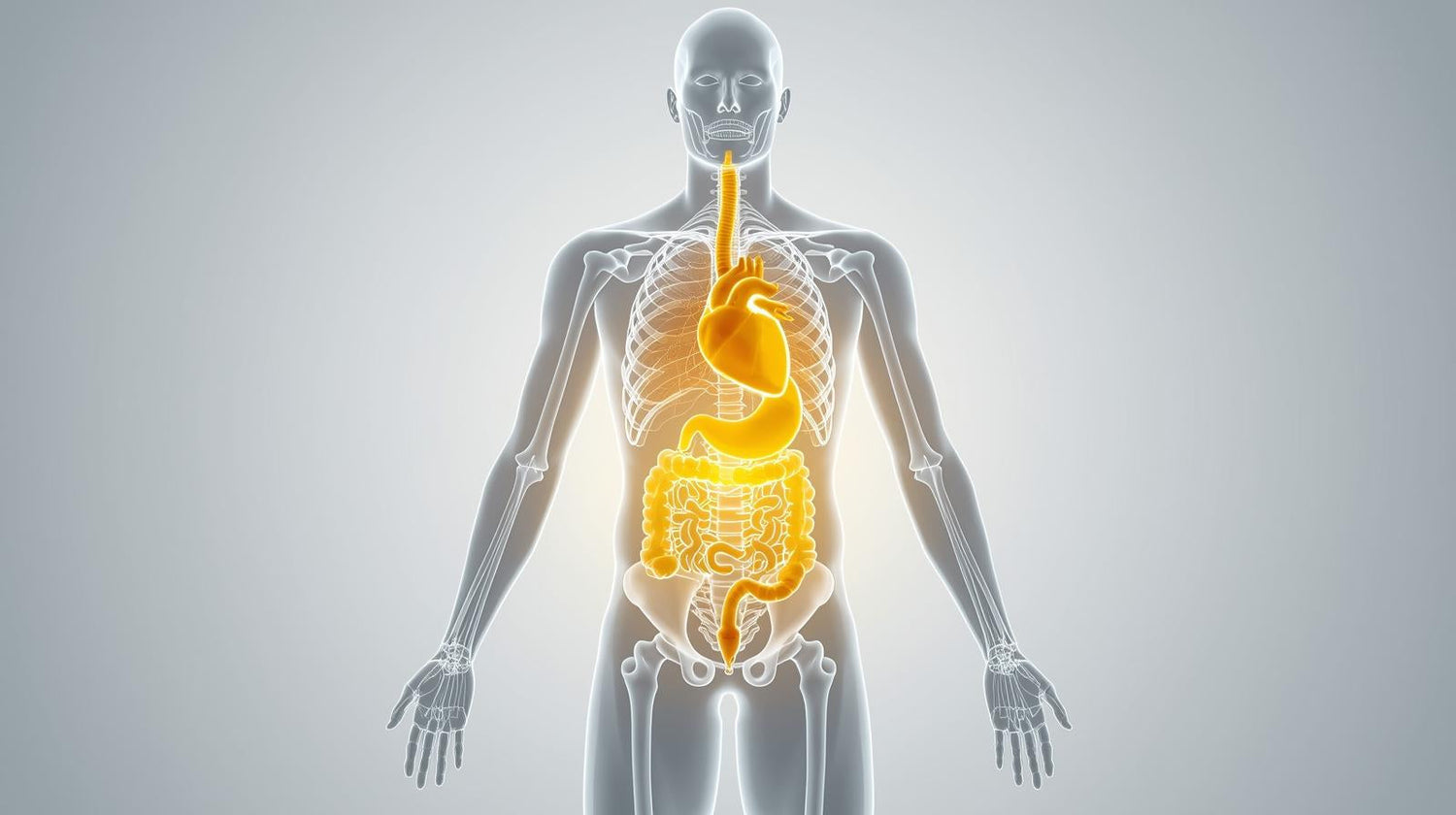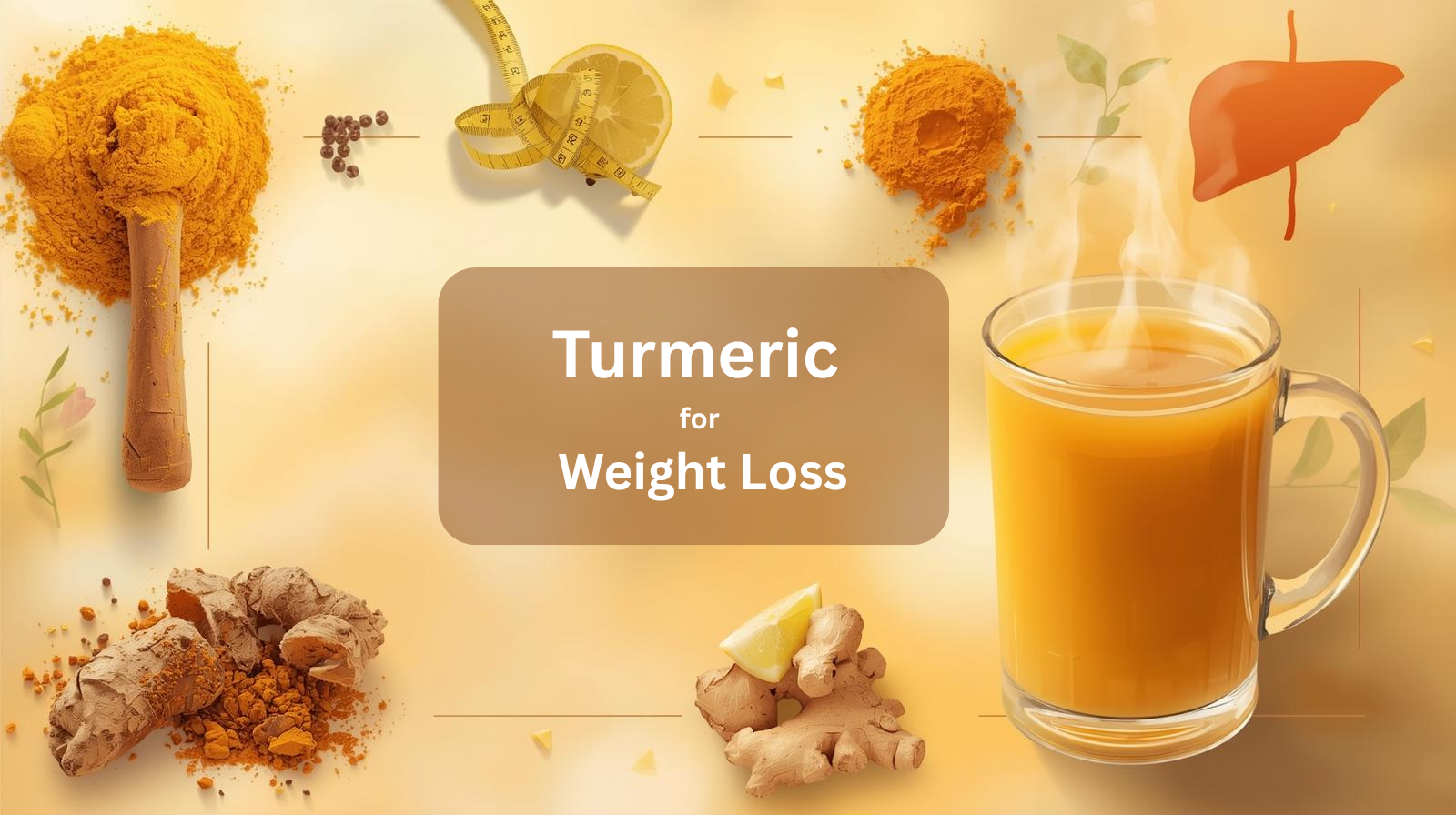Table of Contents
- Introduction
- General Effects of Turmeric on the Body
- Turmeric and Blood/Heart Health
- Turmeric and Digestive Health
- Turmeric for Joint & Bone Health
- Turmeric's effects on the Respiratory system
- GoldenGlow by Supramood
- Conclusion
- FAQs
Introduction
Across the world, the one spice that has earned a permanent place in kitchens and medicine cabinets is Turmeric. It is long known for its golden hue and earthy flavor; this spice carries centuries of history as both food and a healing remedy. In South Asia, turmeric was celebrated long before modern science began to examine its compounds. Today, researchers are uncovering how its active component, curcumin. They are researching how this compound interacts with our bodies to bring credibility to what traditional healers already knew. Today, researchers are uncovering how its active component, curcumin, interacts with our bodies, bringing credibility to what traditional healers have said.
When we talk about turmeric, the conversation is not just about flavoring curries; it’s about how a natural plant root may influence the heart, digestion, joints, lungs, and even overall vitality. The question that people ask most often is: Does turmeric truly work? And the answer to it lies in both evidence and experience.
Key Points of the Blog
- Turmeric works gradually, influencing inflammation, circulation, and immune function.
- It can affect the heart by impacting blood flow, cholesterol, and possibly heart palpitations.
- Turmeric may improve digestion, reducing bloating, constipation, and acidity.
- For joints, turmeric can ease arthritis symptoms and swelling, including knee pain.
- Turmeric has promising effects on the lungs, helping with inflammation and chest discomfort.
- Products like GoldenGlow combine turmeric with other herbs for broader wellness support.
General Effects of Turmeric on the Body
Research also highlights the positive effects of turmeric on the human body, showing its role in reducing inflammation, supporting immunity, and improving overall health. People often raise the question of whether turmeric works instantly. The truth is, turmeric doesn’t work like a pill for quick relief. Instead, its compounds build up in your system, supporting processes that regulate inflammation, immune responses, and oxidative stress.

When you start taking turmeric, the body begins to adjust. Some notice lighter digestion, while others feel less stiffness in their joints. Regular intake supports circulation and may even improve mood and energy. It is a long-term companion, not a short-term fix.
Turmeric and Blood/Heart Health
If we talk about turmeric’s relationship with the heart, then just know that it is layered. People often wonder: Is turmeric a blood thinner? And according to studies, curcumin may slow platelet aggregation, which means it can mildly thin the blood. For most healthy people, this supports smoother circulation. But for those on prescribed blood thinners, caution and medical guidance are necessary.
Another question that has been raised is whether turmeric can clear the arteries. While it doesn’t scrub the arteries clean, turmeric may help in reducing plaque buildup by easing inflammation in vessel walls. This makes it useful in a preventive sense rather than as a cure.
If you have high blood pressure, turmeric can be helpful. This is because some research links it to better blood vessel function, though it should never replace prescribed medication. Instead, turmeric works best alongside lifestyle changes like diet and exercise.
Now, let’s move to heart palpitations, as this also often worries people. Therefore, many ask what tea can help. While chamomile and green tea are often suggested, here, turmeric tea also deserves a mention. Sipping warm turmeric tea may calm inflammation and support heart rhythm, although persistent palpitations should always be checked by a doctor. The link between turmeric and heart palpitations is still being explored, but early evidence hints at calming effects.
Turmeric and Digestive Health
When we talk about digestive health, it is a known fact that for centuries, turmeric has been used to soothe the stomach. This spice interacts with the gut lining, which smooths digestion. If constipation troubles you, turmeric may help by stimulating bile production and movement in the intestines.
Many people also ask if turmeric cleans the stomach. In a sense, yes, it does. By reducing microbial imbalance and promoting enzyme activity, turmeric supports a cleaner digestive process.

We know how uncomfortable gas and bloating can be; fortunately, turmeric can reduce both. Its compounds calm muscle contractions in the gut and cut down excessive fermentation.
Acid reflux sufferers often ask whether turmeric helps or worsens their condition. The answer depends on the individual. For many, turmeric reduces inflammation in the esophagus and brings relief, but for others, large amounts may irritate the stomach lining. Moderation is key here.
Turmeric for Joint & Bone Health
One of the most common uses of turmeric lies in joint care. Arthritis causes pain through inflammation, and turmeric is a natural anti-inflammatory. Recent clinical studies show that turmeric supplements can rival mild painkillers in easing stiffness and swelling.
When it comes to knee pain, turmeric shines again. Applying turmeric paste externally has been a traditional remedy, while consuming it internally provides deeper support. People experiencing turmeric for knee swelling often report less discomfort and better mobility after weeks of use.
But how long does it take? Results vary, but most people notice improvements after four to six weeks of consistent use. This patience is worth it, as turmeric works with your body rather than against it.
Turmeric's effects on the Respiratory system
The lungs are often overlooked in daily health discussions, and one should know that they can also benefit from turmeric’s anti-inflammatory nature. For those dealing with lung irritation or chronic conditions, turmeric may ease breathing. Studies suggest curcumin can reduce inflammation in airways, making turmeric and lung inflammation a topic of growing research.
Chest discomfort is another area where turmeric plays a role. While chest pain always demands medical evaluation, turmeric may soothe inflammation-related tightness. The idea of turmeric chest pain relief stems from its ability to calm inflamed tissues, though again, professional guidance is essential when symptoms are serious.
So, is turmeric good for the lungs? Evidence points toward yes, particularly for people facing long-term inflammation. Is it good for the chest? Yes, but as supportive care rather than a replacement for treatment.
GoldenGlow by Supramood
Amid all these discussions, some wonder how to make turmeric easier to include in daily life. That’s where products like GoldenGlow by Supramood step in. GoldenGlow blends turmeric with other plant extracts to create a balanced wellness elixir. Instead of relying solely on raw turmeric, it combines complementary herbs, enhancing absorption and broadening its effects.

For those who struggle to add turmeric to their diets consistently, GoldenGlow offers a ready-made solution. It doesn’t just support the joints or heart but addresses whole-body wellness, making it a modern answer to an ancient spice.
Conclusion
Turmeric has walked the line between kitchen staple and healing agent for centuries. Modern research confirms much of what traditional healers believed: turmeric influences inflammation, circulation, and immunity in ways that ripple across the body.
For the heart, it steadies circulation and may support healthier rhythms. For digestion, it eases constipation, gas, and reflux. For joints, it reduces pain and swelling, especially in the knees. For the lungs and chest, turmeric calms inflammation and improves breathing comfort.
The takeaway is simple: turmeric is not a miracle spice, but it is a steady and dependable one. Used regularly and wisely, it can support better health across multiple systems. Pair it with professional guidance, and turmeric becomes a safe, natural companion on your wellness journey.
Frequently Asked Questions (FAQs)
How much turmeric should you take daily?
Most research recommends 500-1,000 mg of curcumin per day, often through supplements, though adding turmeric to food also helps.
What is the best time of day to take turmeric?
Turmeric works best with meals that contain healthy fats, as fat helps absorb curcumin. Many prefer taking it in the morning or with dinner.
Can you take turmeric on an empty stomach?
It is better to take turmeric with food, as empty stomach consumption may cause mild irritation for some people.
Can turmeric be taken with other supplements or medications?
Yes, but those on blood thinners, antacids, or diabetes medications should consult their doctor, as turmeric may interact with these.
What are the possible side effects of taking turmeric daily?
Most people tolerate turmeric well, but high doses may cause stomach upset, nausea, or interact with certain medications.







Leave a comment
All comments are moderated before being published.
This site is protected by hCaptcha and the hCaptcha Privacy Policy and Terms of Service apply.